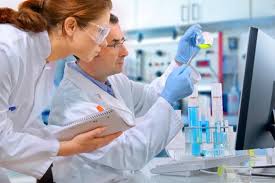An infectious disease specialist directly relates to such a field of medicine as infectology. It, in turn, consists in the study of infectious diseases, which include respiratory tract infections and intestinal infections, infections of the external skin integument, blood infections (vector-borne infections and non-vector-borne infections), etc.
Given the features of the listed specifics of each of the areas, we note that the infectious disease specialist treats infectious diseases, respectively, diagnosing them, prescribing appropriate treatment and identifying specific preventive measures to prevent them further.
In particular, the infectious disease specialist studies in detail the specifics of the occurrence of infectious diseases, the mechanisms of their development, as well as the clinical manifestations inherent in them.
The diseases themselves, which are involved in the infectious disease specialist, arise, as you might guess, due to pathogens that enter the body. The work of infectious disease specialists is closely related to the data of microbiology and epidemiology.
Infectology: main sections
To understand the specifics of the activity of the infectious disease specialist, we outline the main groups of areas in which the activities of this doctor are concentrated:
- intestinal infections – pathogens enter through the mouth into the intestines (unwashed hands; with food, etc.);
- blood infections (vector- borne ) – transmission of pathogens occurs through insect bites (mosquitoes, ticks, fleas, etc.);
- blood infections (non- transmissible ) – the transmission of infection occurs through the use of dirty needles during blood transfusions, while taking injecting drugs, etc.;
- respiratory tract infections – in this case, infection occurs by aerosol method (airborne droplets);
- infections of the external skin integument – their transmission is carried out by contact, which involves the transmission of infection through the mucous membranes, skin, etc.
What does an infectious disease specialist treat?
The following types of diseases fall under the competence of the specialist in question:
- salmonellosis;
- midland;
- malaria;
- typhoid fever;
- adenoviral diseases;
- scarlet fever;
- pertussis;
- measles;
- encephalitis;
- helminthiasis;
- toxoplasmosis;
- parotitis;
- anthrax;
- plague;
- diphtheria;
- flu;
- hepatitis;
- lesions of the nervous system of a viral nature;
- rabies;
- foot and mouth disease;
- cholera;
- polio, etc.
Reception of an infectious disease specialist
Patients, given such a wide specificity of the activity of this specialist, are interested in what the infectious disease specialist does at the reception. In particular, his actions consist in communicating with the patient to obtain information regarding complaints that are relevant to him. In parallel with this, he is studying his medical history and determining the epidemiological history. The latter includes clarifying with the patient whether he came into contact with infected patients, whether he traveled to endemic areas, etc. He then performs a physical examination of the patient along with a general examination.
Note that often an infectious disease specialist prescribes an additional type of examination, after which he already determines a specific treatment. In addition, certain recommendations regarding nutrition can be given, as well as warnings to prevent an infectious disease.

An urgent need can lead, in addition to consulting an infectious disease specialist, to emergency vaccination against specific diseases (rabies, tetanus, etc.).
Tests and studies prescribed by the infectious disease specialist
- sowing and smear on the flora;
- PCR diagnostics;
- blood chemistry);
- serological diagnostics for intestinal and respiratory diseases;
- blood markers for viral hepatitis;
- ELISA – enzyme-linked immunosorbent assay.
When to see an infectious disease specialist?
Today, in order to visit the office of the infectious disease specialist, there are many reasons.
In particular, symptoms requiring attention include:
- severe headaches;
- sleep disturbances (insomnia, drowsiness);
- purulent formations that appear in the mucous region;
- chronic fatigue, fast onset fatigue;
- muscle aches, joints;
- rash of various specifics;
- enlarged lymph nodes;
- redness of the skin, swelling, possibly in combination with itching;
- disorders of the digestive tract (diarrhea, constipation, nausea and vomiting).
For example, in the course of constant research it was revealed that the basis of almost all existing diseases is infectious agents. Given this, the manifestation of the symptoms that we will list below indicate that you should not postpone an appointment with an infectious disease specialist.
Infectionist for a child: when to go for an appointment?
The number of infectious diseases only increases over time, including this trend also applies to children in whom at any age any of these diseases can develop into a malignant course.
Parents need to visit the infectious disease doctor’s office with a child when the following symptoms occur:
- the appearance on the mucous or on the skin of the foci of a rash (pustules, blisters, spots or subcutaneous nodes, papules);
- intoxication (eye pain, muscle aches);
- headaches;
- diarrhea;
- blood in the stool;
- nausea and vomiting;
- jaundice;
- temperature around 38 ° C.
Subsequently, such a course can be aggravated by a number of factors, which will lead to a chronic form. The reason for this is the ecological situation, due to which, first of all, the spread of immunodeficiency states occurs.



